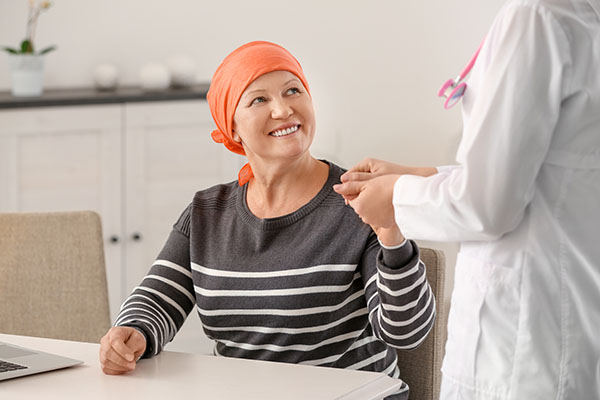Advantages of Treatment From a Cancer Center

A cancer center is a specialized medical institution that focuses on diagnosing, treating, and caring for cancer patients. A wide variety of services is available at these facilities to help patients and their loved ones deal with the physical and emotional side effects of cancer treatment and access the most cutting-edge therapies, technologies, and clinical trials. In this article, you will learn about a few of the most significant benefits of receiving care in a cancer center.
Advantages of treatment
Cancer centers offer a range of advantages for individuals seeking treatment for cancer, including the following.
A team of specialists
The availability of interdisciplinary teams of experts is a significant perk of receiving care at a cancer center. Since cancer is a complex condition to treat, cancer hospitals often assemble multidisciplinary teams to determine the most effective strategy for each patient. Medical oncologists, radiation oncologists, surgical oncologists, and other experts collaborate on tailoring treatment programs for each patient. Patients with different types and stages of cancer receive the best possible care due to this cooperative effort.
Latest treatment
Many cancer centers have easy access to cutting-edge diagnostic and therapeutic tools. Targeted therapy and immunotherapy are two examples of novel therapies that have been shown to enhance patient outcomes, and cancer centers are equipped to provide them. One form of cancer treatment, known as targeted therapy, is aimed directly at the chemicals that fuel malignant cells' growth and metastasis. In contrast, immunotherapy employs the patient's immune system to combat malignant cells.
Cancer centers are at the forefront of developing and implementing these medicines, which have shown promise in treating many forms of cancer. In addition, through clinical trials, several cancer clinics offer patients the chance to take part in experimental therapies not widely accessible.
Supportive services
In addition to medical care, cancer clinics provide various psychosocial support services to help patients and their loved ones deal with the disease and its treatment. Counseling, nutritional guidance, pain relief, and rehabilitative treatments are all examples of what may fall under this category. Cancer centers recognize the significance of addressing the needs of the whole person, not just their physical symptoms, while caring for patients and their loved ones going through the emotional and mental upheaval that comes with a cancer diagnosis.
In addition, several cancer centers provide treatments and programs specifically for patients with certain forms of cancer, such as breast or prostate cancer. With the help of these initiatives, patients may connect with oncologists who specialize in treating their particular kind of cancer, as well as with peer support groups and other valuable resources.
Latest technology
Accurate diagnosis and staging of cancer require modern imaging technologies like PET/CT and MRI, which are available at cancer centers. These imaging methods capture high-resolution pictures of the human body, which doctors may use to spot cancers and other abnormalities. Furthermore, cancer centers have access to cutting-edge radiation treatment technologies, including intensity-modulated radiation therapy (IMRT) and image-guided radiation therapy (IGRT), which may lessen the likelihood of unpleasant side effects.
IGRT uses imaging during treatment to ensure that radiation is precisely targeted to the tumor, minimizing exposure to healthy tissue, whereas IMRT uses advanced computer software to sculpt the radiation beam to the shape of the tumor.
Last but not least, people with cancer and their families have access to palliative care, which is a kind of treatment focused on reducing pain and other symptoms so patients and their loved ones may enjoy a higher standard of living even as they near the end of life. The primary goals of this care are symptom control, emotional well-being, and problem-solving.
Easy budget for medical care
Getting cancer treatment has far-reaching effects on a person's life. Even for patients with health insurance or Medicare, their treatment will still put a serious dent in their bank account. The amount spent on cancer care is variable and depends on many factors, including the number of accessible providers and the sophistication of the available technology.
Patients can obtain the same level of treatment at a local cancer center as in a major city, but they will be in a more comfortable and convenient environment, where the staff is familiar with them on a personal level and has a thorough understanding of their physical, mental, and emotional needs.
Conclusion
Cancer patients who seek treatment at a cancer center have better access to a wide variety of resources, including multidisciplinary teams of experts, cutting-edge diagnostic and therapeutic tools, emotional and practical support, and even palliative care. These benefits can potentially enhance cancer patients' health and well-being. When dealing with a complex or advanced cancer diagnosis, patients and their loved ones should look into receiving care at a cancer center.
Request an appointment here: https://lindenbergcancer.com or call Lindenberg Cancer & Hematology Center at (856) 475-0876 for an appointment in our Marlton office.
Check out what others are saying about our services on Yelp: Cancer Center in Marlton, NJ.
Recent Posts
Chemotherapy is an effective cancer treatment but one that is taxing on the body. Therefore, searching for "chemotherapy near me" should help you find a conveniently located facility to make receiving this treatment a little easier. Lindenberg Cancer & Hematology Center is located in the Marlton area. Our team will strive to help you through…
Our cancer center aims to alleviate the stress and burden often associated with cancer care. Unlike traditional oncology offices, we offer comprehensive care under one roof. This means you and your loved ones can access all your care needs without the added stress of moving around the city or state to consult multiple professionals. We…
Acute lymphocytic leukemia treatment comprises various methods, ranging in invasiveness. We determine the most effective method for you by assessing several factors, such as your age, cancer subtype, its stage, and what your body is able to handle. Take a look at the various treatment options our oncologist may employ to help get you into…
Chemotherapy, commonly known as "chemo," is a lung cancer treatment that uses anti-cancer drugs to kill cancer cells in the lungs and other parts of the body. It can shrink or stabilize the tumor, target leftover cancer cells after surgery, or alleviate symptoms. A chemotherapy plan is personalized to each patient's unique needs and circumstances,…


